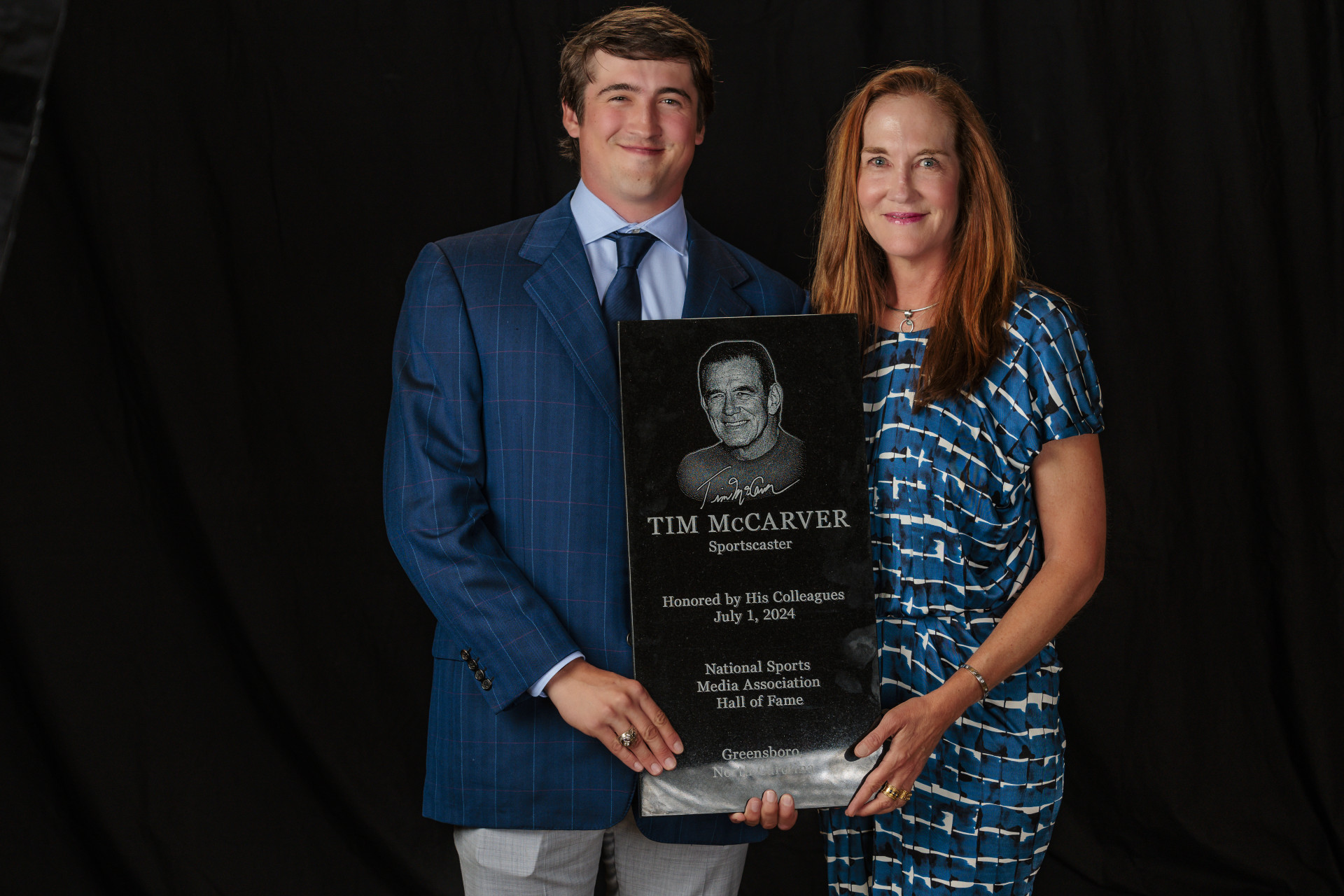2024-Tim McCarver

Tim McCarver proved as versatile and dependable during his Hall of Fame broadcasting career as he did during his MLB career that spanned parts of four decades. A two-time All-Star catcher who was part of two World Series championship teams, McCarver’s broadcasting career lasted more than 30 years.
He was known as a shrewd and literate analyst, who could predict what was about to happen on the field. Sometimes a play-by-play announcer, McCarver was most often a color commentator, a role for which his talents were better suited.
His on-air career began in Philadelphia in 1980, moved to the Mets’ booth, and then to his national appearances on four different networks, while also calling games for the Yankees and the Giants.
McCarver was a respected independent voice in the booth, not afraid to criticize teams for which he worked. Some thought that cost him his job with the Mets in 1999, after 16 seasons broadcasting their games.
McCarver called a total of 24 World Series. For the first, on ABC in 1985, he was a replacement for another NSMA Hall of Famer, Howard Cosell.
As with many of baseball’s best broadcasters, McCarver was a catcher. The thinking goes that because a catcher plays such a large part in all facets of the game, that it’s easier for one to impart that knowledge on a broadcast. When you mixed that with his intelligence, communication skills, and sense of humor, you had a Hall of Fame broadcaster.
When you think of McCarver as a ballplayer, the two words that come to mind are solid and dependable. Most of his career, which stretched from 1959 to 1980, was spent with two teams, the Cardinals and the Phillies. His career batting average of .271 was among the better averages for catchers at that time. But he was known better for his handling of pitchers, including two of the game’s all-time best, Bob Gibson and Steve Carlton.
In 1966, McCarver did something no catcher had done before. He led the league in triples with 13. He made his first All-Star team that season, and made his second in 1967, when he hit .295 and with a career-high 14 home runs and 69 runs batted. He finished second behind teammate Orlando Cepeda in voting for the National League’s Most Valuable Player award. With McCarver in the lineup, the Cardinals won three pennants and two World Series (1964, 1967). In the ’64 series over the Yankees, he hit safely in all seven games, batting .478 and hitting a 10th-inning three-run homer to win Game 5. Though he didn’t hit well in the ‘67 Series win over Boston, he hit .333 in the ’68 Series against Detroit. Ironically, the Cardinals won in ’67, but lost in ’68. Both Series went 7 games.
As a player, McCarver is probably best known as the battery mate of choice for two of the greatest pitchers in big-league history, Bob Gibson and Steve Carlton. Both were on the Cardinals in the 1960s, and McCarver was behind the plate for Gibson’s 1968 season, in which his earned run average was a minuscule 1.12, the lowest for any pitcher in over a century.
Carlton joined the Cardinals in 1965, and McCarver caught his first two all-star seasons, 1968 and 1969; after that, they followed each other
McCarver was traded to the Phils in 1970, to the Expos in 1972, back to the Cardinals in 1973, and to the Red Sox in 1974. When Boston released him the next season, the Phillies brought him back and made him Carlton’s personal catcher. From 1976 to 1979, Carlton won 77 games, and the second of his four Cy Young Awards, and the Phillies reached the postseason three times
McCarver was released after the 1979 season and began his broadcasting career the next year, but the Phillies brought him back in October 1980 so that he could join the short list of big leaguers who played in four separate decades. He appeared in six games; had one hit, a double; and occasionally handled two jobs at once, conducting television interviews in his Phillies uniform.
McCarver also appeared on broadcasts outside of the baseball booth. He hosted the “Time McCarver Show” on radio and television for several years, interviewing sports celebrities and others. He was a co-host for CBS’ broadcast of the 1992 Winter Olympics. In addition, he co-authored six books, appeared in several movies, sang for an album, and was such a good bridge player, that the New York Times talked about him in its bridge column.
The capstone to McCarver’s career came in 2012, when he received the Ford C. Frick Award, essentially a lifetime achievement citation presented annually to a broadcaster by the National Baseball Hall of Fame for “major contributions to baseball.”
Four years later, he was inducted into the Sports Broadcasting Hall of Fame.
McCarver died in February of 2023 in his hometown of Memphis. He left behind two daughters, Kelly and Kathy, and two grandchildren.
He was inducted into the NSMA Hall of Fame on July 1st, 2024.

